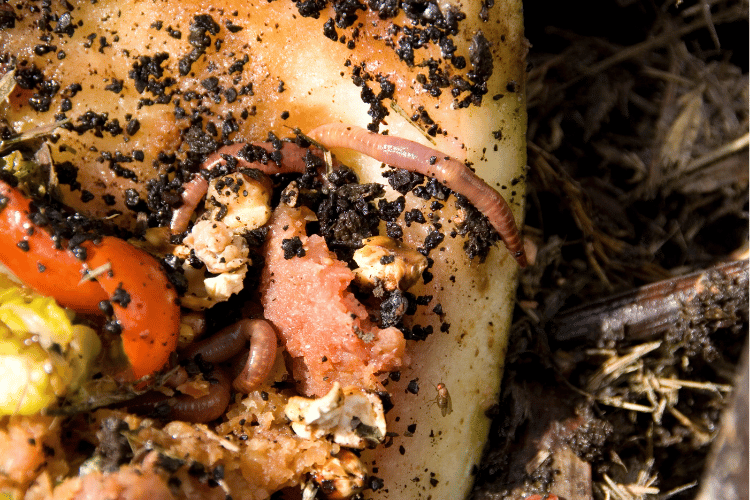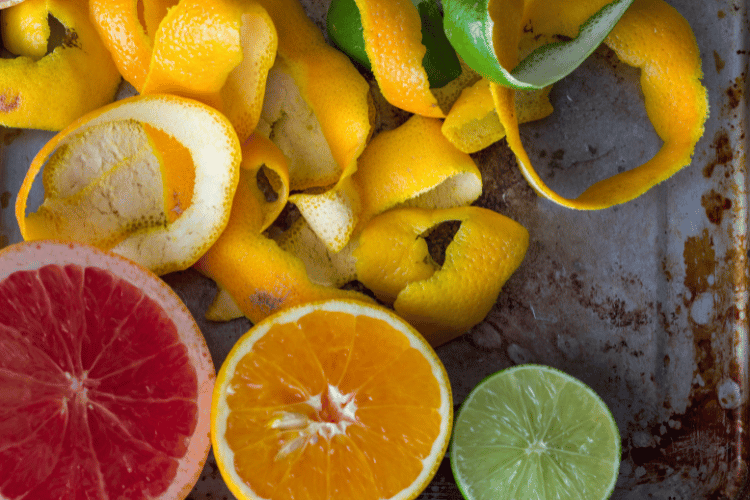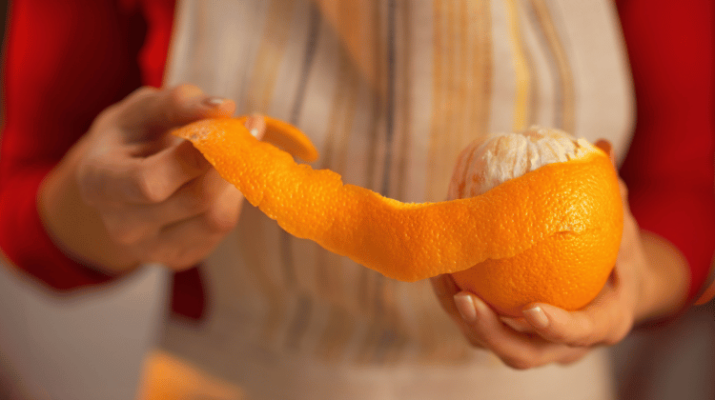Worms are invertebrate animals that belong to the phylum Annelida. They’re long, slender, and segmented creatures that can be found in a variety of habitats, including soil, water, and compost bins.
These wriggly creatures play an important role in the ecosystem by breaking down dead plant and animal matter into nutrient-rich compost. This process is called decomposition, and it helps to recycle essential nutrients back into the environment.
So, what do these useful creatures eat? Can they consume food scraps and leftovers? How about citrus fruits: can worms eat orange peels?
That’s what we’re here today to find out.
Can Worms Eat Orange Peels?

Yes, worms can eat orange peels, but only in moderation. The high acidity of orange peels can be harmful to worms if they consume too much in a short amount of time.
On the other hand, if you add pieces of peels to your worm bin in small amounts, the worms will be able to break them down. Then, they can use these tasty treats as a nutritious food source.
All in all, it’s important to note that orange peels should only be fed to worms as part of a balanced diet made up of a wide range of organic materials.
Benefits
There are several potential benefits to feeding orange peels to worms:
Increased nutrient content of compost
Orange peels contain a variety of nutrients that can be beneficial for plants, such as nitrogen, phosphorus, and potassium. When worms break down orange peels, they release these nutrients into the compost, making it a more nutrient-rich fertilizer for your plants.
Improved soil structure
Orange peels have a high fiber content, which can help to improve the structure of the soil. This is because fiber helps to bind soil particles together, creating larger aggregates that allow for better air and water infiltration.
Reduced acidity
Orange peels are acidic, but when worms break them down, they neutralize some of this acidity. This can be beneficial for plants in your vegetable garden that prefer a slightly alkaline soil, such as tomatoes and peppers.
Natural pest control
The d-limonene found in orange peels has been shown to have insecticidal properties. This means that feeding orange peels to worms may help to control pests in your garden while attracting helpful insects.
Sustainable waste disposal
Orange peels are a common household waste product, and feeding them to worms is a sustainable way to dispose of them. Instead of sending them to the landfill, you can turn them into a valuable resource for your garden.
Drawbacks
While orange peels can be a rich source of nutrients for worms, there are some drawbacks to feeding them to your vermicomposting bin. Here are some of the potential downsides:
- As with other citrus peels, oranges contain citric acid, which can make the worm farm too acidic for the worms to thrive in.
- Orange peels are tough and fibrous, which means they take a longer decomposition time.
- The smell of orange peels can attract pests, such as fruit flies.
- If you feed your worms too many orange peels, they may not get the nutrients they need from other food sources.
- If you add too many orange peels to your worm bin, it can start to give off a foul odor.
Can Worms Eat Orange Flesh?

Definitely! Orange flesh is actually an excellent source of food for worms. It’s high in nutrients, including vitamins A and C, as well as being a good source of fiber. Worms are able to digest the fiber in orange flesh and use it as a source of energy.
The high levels of acidity in orange peels and flesh can damage the worm’s digestive system. That’s why we recommend you chop the oranges into small pieces and add them to the worm bin gradually. This applies whether you’re serving both peel and flesh together or just one section of the orange.
Another reason is that the acidity can cause an imbalance in the pH of the worm bin. So, make sure you constantly monitor the pH of your worm bin to ensure that it stays within a healthy range.
What Other Types of Citrus Fruits Can Worms Eat?
All types of citrus fruits can be a part of a healthy vermicomposting diet because they’re a good source of vitamin C, citric acid, and fiber. Make sure you serve citrus fruits in moderation and take steps to balance out their acidity.
Worms can consume a variety of citrus fruits, including:
- Lemons
- Limes
- Grapefruits
- Tangerines
- Clementines
- Satsumas
Tips to Remember When Feeding Worms Citrus Fruits
By following these tips, you can safely feed citrus fruits to your worms and enjoy the benefits of having healthy, happy worms.
- Both the peel and flesh of citrus fruits are good sources of fiber, and they can help balance out the acidity of the citrus flesh.
- Add a layer of bedding material, such as shredded newspaper or leaves, on top of the citrus fruits. It’ll help to prevent the fruits from drying out. It’ll also absorb excess moisture, which can attract pests.
- The ideal pH range for a worm bin is between 6.0 and 7.0. If the pH of your worm bin starts to create an acidic environment, add more high-pH materials, such as crushed eggshells or limestone, to help balance out its acidity and provide a more neutral environment within the worm farm.
- Chop the citrus peels into small pieces to make it easier for the worms to consume and digest.
- When first introducing citrus peels, start by adding small amounts, then if the worms seem interested, you can gradually increase the amount.
A Final Note
With a little care, you can safely add orange peels to your worm bin and enjoy the benefits of having healthy, happy worms. Overall, orange peels can be a part of a healthy vermicomposting diet, but it is important to feed them in moderation and take steps to balance out their acidity.
By following the tips in this handy guide, you can safely feed orange flesh to your worms and enjoy the benefits of having healthy, happy worms.

